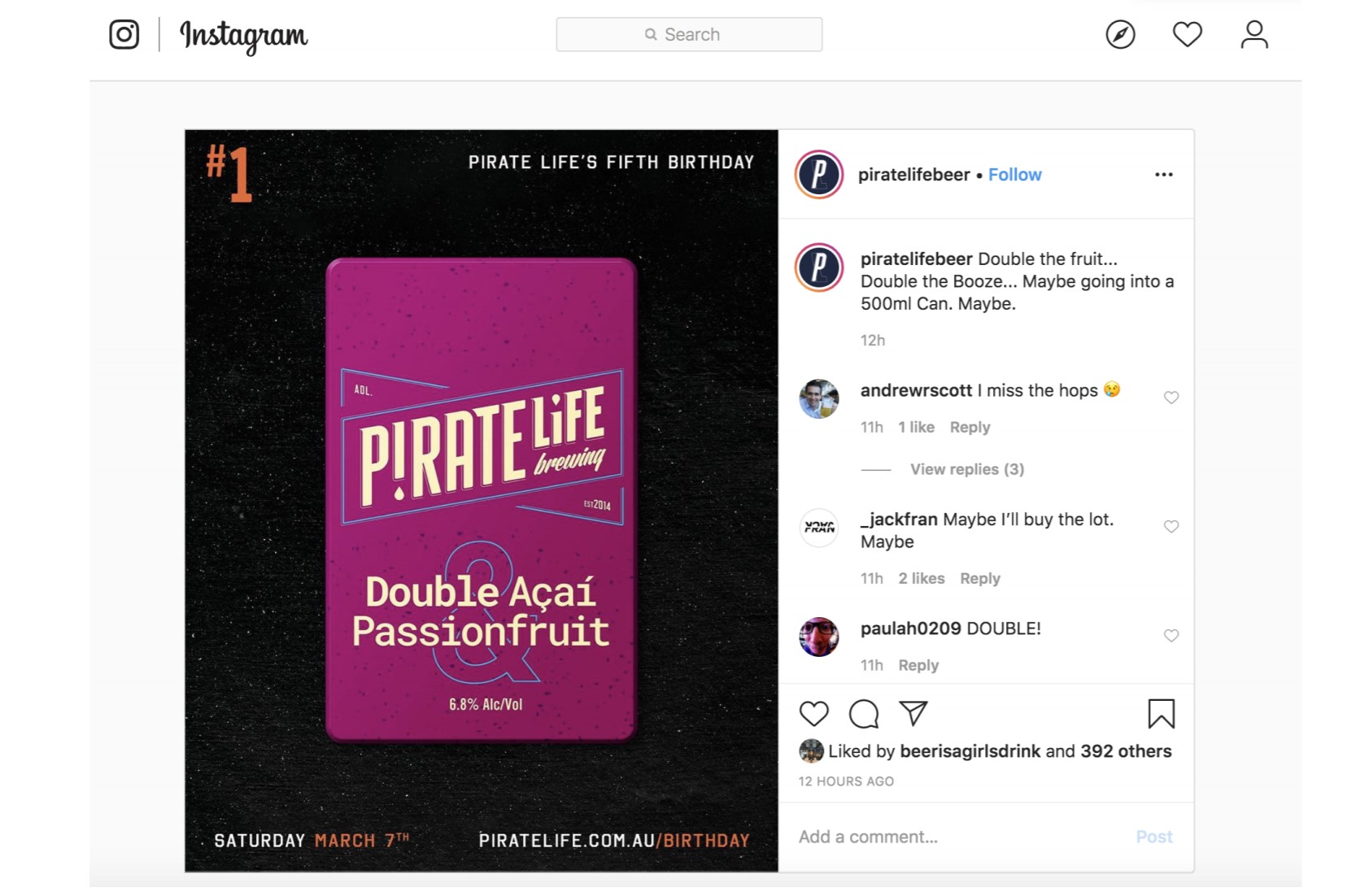
ABAC dismisses latest round of complaints
Alcohol advertising watchdog ABAC last week dismissed a number of complaints against James Squire’s One Fifty Lashes and Pirate Life, as well as ruling on complaints against Coopers and BWS.
James Squire 150 Lashes
A complaint to ABAC accused the imagery of a James Squire One Fifty Lashes video ad of portraying violence “of a particularly vile and illegal type”. The complainant claimed that the ad is “disgusting and is totally inconsistent with public efforts to end personal violence.”
The video advert in question was an animation portraying the story of convict James Squire, stealing hops to make beer and being sentenced to 150 lashes of the whip as a result.
James Squire owners Lion responded to the complaint, saying the advert does not show, directly imply or encourage irresponsible or offensive behaviour that is related to the consumption of alcohol.
Lion explained that it shows the story of Australia’s ‘first convict brewer’, and would be considered by a reasonable person to be depicting a historical incident.
An ABAC panel said it was not its jurisdiction to cover the ethics of an advert.
“While the backdrop of the origin story involves the convict receiving 150 lashes, which is by contemporary sensibilities a barbaric punishment, the ad doesn’t show the flogging nor does it suggest the current use of the product is endorsing whipping as an acceptable punishment,” the panel said.
“It cannot be reasonably taken as promoting violence. No doubt the complainant is entirely genuine in the concern expressed but a reasonable person would not understand the ad in the way the complainant has taken the message.”
The complaint was dismissed.
Pirate Life Instagram
The latest of a number of complaints made against Pirate Life, which have focused particularly on its social media content and advertising, relates to its Double Acai & Passionfruit Sour beer.
An advert for the beer posted to social media platform Instagram, it was argued, promoted the beer based on its higher alcohol content, noting the term “double the booze” in the post copy. Promoting a beverage on its strength is banned under ABAC standards.
CUB-owned Pirate Life responded by saying that while the advert does mention the ABV of the product, it does not use this to encourage consumers to choose the beer based on its alcohol content.
It says it included the line to distinguish the product from its regular Acai & Passionfruit Sour.
The ABAC judging panel listed a number of points which can contribute towards its decision over whether a company is promoting its product’s alcohol content as a reason for customers to buy it,
It did point out that there was a bit of advertising “puffery” going on, in that with the beer coming in at 6.8% abv, it wasn’t exactly double the 3.8% abv of the original beer.
Despite this, the panel did not believe that it was in breach of the code because its dominant messaging was not about the strength of the beer, the copy of the post is subordinate to the main image and understood as part of a whole, the text does not give undue emphasis to the strength of the beer.
The complaint was dismissed.
It’s not the first time that Pirate Life’s Acai & Passionfruit beer has been before ABAC, with the packaging for an earlier, lower alcohol version being accused of resembling that of a soft drink.
This complaint too was dismissed.
Coopers and Booze Brothers
In a ruling earlier this month, Coopers was forced to respond to complaints about digital advertising on the InDaily website(pictured below).

A complainant wrote in to say that the advertising linked Coopers’ alcohol products to ‘lifesaver’ lollies which are a product aimed at minors and describing them as ‘lifesavers’ suggests that “consumption may create or contribute to a significant change in mood, offer a therapeutic benefit and be an aid to relaxation,” they said.
Coopers argued that they were not the marketer responsible for the advertising, laying the blame at the feet of Booze Brothers which had advertised its products “without Coopers’ knowledge or input”.
Booze Brothers’ parent company the Saturno Group also responded saying they had commissioned an agency for the work.
“We politely ask that this be considered as a complete oversight by Solstice [the agency] as they were not aware of the codes and of Booze Brothers for not consulting more closely on the artwork, to in this instance be dismissed.
“Booze Brothers has advised Solstice of the codes and in the future will ensure all parties check the artwork for approval and it is in line with the campaigns Coopers are running that would have ABAC approval.”
ABAC upheld the complaint in relation to a potential appeal to minors due to the colours portrayed in the advert, but said it dismissed the complaint relating to lifesavers and the alcohol product claiming to have a mood-altering effect, saying a reasonable adult would not make this connection.
In the past month, ABAC has made rulings on a number of other advertisements, including two complaints against BWS, one against an outdoor advertisement which a complainant said encouraged the use of alcohol as a relaxation aid, and another for a video advertisement the retailer made and distributed across a number of social media channels. It reportedly failed to utilise all available age restrictions for the platforms.
The panel upheld the complaints in both cases.



